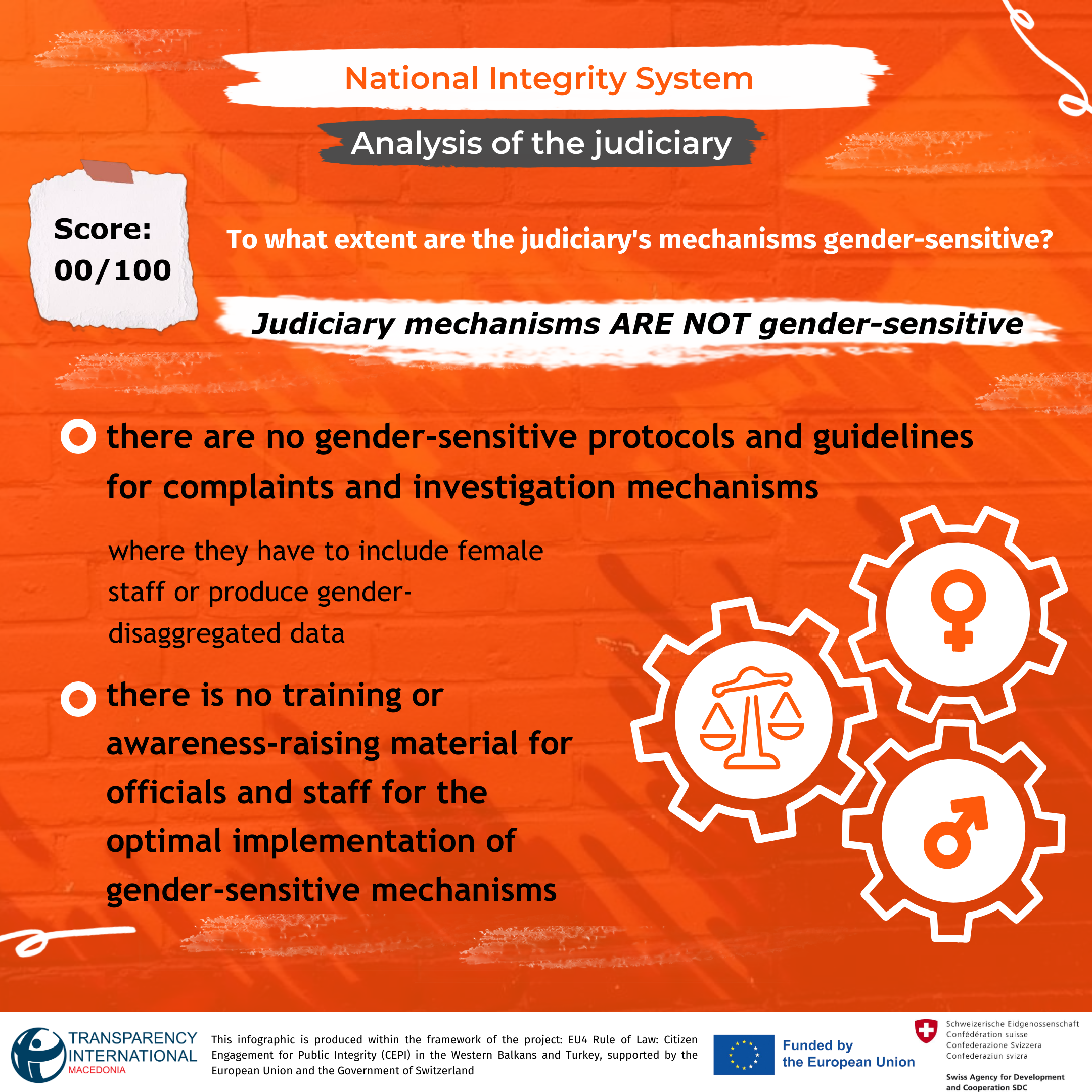At the beginning of 2024, Transparency International-Macedonia published the report: “National Integrity System of North Macedonia”, which contains an analysis of the situation with the pillars of the state’s integrity in relation to corruption and the effectiveness of national efforts to deal with corruption.
The report was prepared during 2022 and 2023 within the project “EU4 Rule of Law: Citizen Engagement for Public Integrity (CEPI) in the Western Balkans and Turkey”, which is funded by the European Union and the Government of Switzerland.
Within this report, an analysis was conducted and an assessment for 15 pillars which are part of the country’s state system was prepared. The assessment is conducted according to a methodology prepared by Transparency International.
Gender sensitivity was one of the indicators to analyze the work of the judiciary in this report.
To what extent are the judiciary’s mechanisms gender-sensitive?
Score: 00/100
Judiciary mechanisms are not gender-sensitive.
The judicial council produces gender-disaggregated data on gender equality within the judiciary on aspects such as the number of appointed judges and number of appointed presidents of the courts, but not whether their mechanisms, such as complaints mechanisms, are gender-sensitive.
There are, in fact, no gender-sensitive protocols and guidelines for complaints and investigation mechanisms where they have to include front-facing female staff or produce gender-disaggregated data on, for example, complaints filed by gender women or men, processing times of complaints filed by women or men, complaints solved or disregarded by women or men. There is also no training or awareness-raising material for officials and staff for the optimal implementation of gender-sensitive mechanisms.
National Integrity System: https://transparency.mk/wp-content/uploads/2024/01/national.integrity.system.assessment.2023-4.pdf




